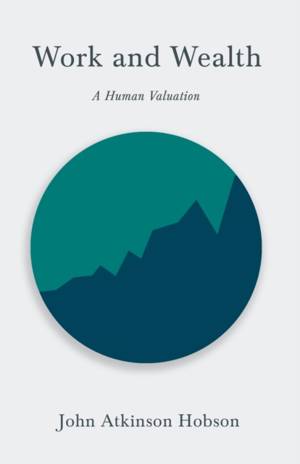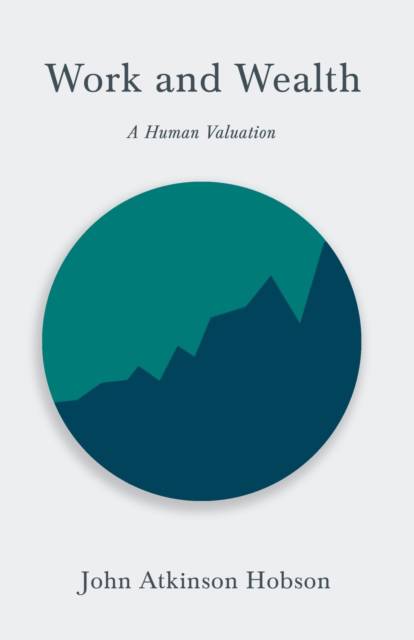
Bedankt voor het vertrouwen het afgelopen jaar! Om jou te bedanken bieden we GRATIS verzending (in België) aan op alles gedurende de hele maand januari.
- Afhalen na 1 uur in een winkel met voorraad
- In januari gratis thuislevering in België
- Ruim aanbod met 7 miljoen producten
Bedankt voor het vertrouwen het afgelopen jaar! Om jou te bedanken bieden we GRATIS verzending (in België) aan op alles gedurende de hele maand januari.
- Afhalen na 1 uur in een winkel met voorraad
- In januari gratis thuislevering in België
- Ruim aanbod met 7 miljoen producten
Zoeken
Work and Wealth - A Human Valuation
With an Introductory Chapter from Problems of Poverty
John Atkinson Hobson
Paperback | Engels
€ 23,95
+ 47 punten
Omschrijving
Originally published just before the First World War in the summer of 1914, "Work and Wealth - A Human Valuation" is a seminal treatise by English social scientist and economist John Atkinson Hobson. Within it, Hobson's analyses the human costs of industrial capitalism and emphasises the social nature of production and its conflict with an individualistic private enterprise economy. "Work and Wealth" represents one of the earliest efforts to gauge the social costs of production and has had a noticeable impact on three generations of liberal thought, particularly that which is related to the distinctions between welfare and ill fare. Contents include: "The Human Standard of Value", "The Human Origins of Industry", "Real Income: Cost and Utility", "The Creative Factors in Production", "Human Costs of Industry", "The Reign of the Machine", "The Distribution of Human Costs", "Human Costs in the Supply of Capital", "Human Utility in Consumption", etc. John Atkinson Hobson (1858 - 1940) was an English social scientist and economist most famous for his work on imperialism-which notably had an influence on Vladimir Lenin-as well as his theory of underconsumption. His early work also questioned the classical theory of rent and predicted the Neoclassical "marginal productivity" theory of distribution. Many vintage books such as this are becoming increasingly scarce and expensive. We are republishing this volume now in an affordable, modern, high-quality edition together with an introductory chapter from Hobson's "Problems of Poverty".
Specificaties
Betrokkenen
- Auteur(s):
- Uitgeverij:
Inhoud
- Aantal bladzijden:
- 270
- Taal:
- Engels
Eigenschappen
- Productcode (EAN):
- 9781528715126
- Verschijningsdatum:
- 1/10/2019
- Uitvoering:
- Paperback
- Formaat:
- Trade paperback (VS)
- Afmetingen:
- 140 mm x 216 mm
- Gewicht:
- 349 g

Alleen bij Standaard Boekhandel
+ 47 punten op je klantenkaart van Standaard Boekhandel
Beoordelingen
We publiceren alleen reviews die voldoen aan de voorwaarden voor reviews. Bekijk onze voorwaarden voor reviews.









